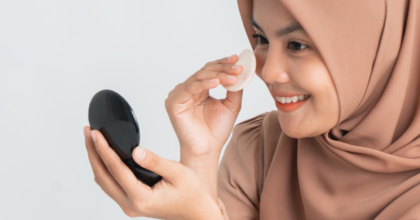Not to be sneezed at – almost half of all Brits are allergy sufferers
Spring has sprung, the Daffodils are blooming and the much anticipated British Summer Time begins this weekend. But for many of us, the season of sneezing, runny noses and itchy eyes is just around the corner, as new research from Mintel finds today, almost half of Brits are allergy sufferers with hayfever topping the nation’s allergic conditions.
A staggering 44% of British adults now suffer from at least one allergy and the number of sufferers is on the rise, growing by around 2 million between 2008 and 2009 alone. Almost half (48%) of sufferers have more than one allergy.
According to exclusive consumer research, an allergy to pollen (26%) is the most common allergy, followed by house dust mites (11%) and pets (9%). Other allergies include, mould (4%) rubber (2%) and metal (1%). Dairy (including eggs) and fish or seafood (4%) are the most frequently suffered food allergies, while 2% of Brits suffer from a nut allergy.
Less than half (49%) of allergy sufferers have had their allergies diagnosed by a medical professional. Women and younger adults (under 35s) are the most likely to suffer from allergies (around half) whereas just three in ten older people (65+) claim to be allergic to something.
Alexandra Richmond, Senior Health and Beauty Analyst at Mintel said:
” an estimated 21 million adults in the UK suffer from at least one allergy, with 10 million suffering from more than one. There are only a limited number of NHS allergy clinics in the UK and so waiting lists for testing tend to be long and people are left with little choice but to research their symptoms to identify what they are allergic to. A lack of professional opinion may see them wrongly believing that they are allergic to a number of things when in fact they are not. “
The market for over the counter allergy remedies has seen little value growth since 2004, growing by 5% between 2004 and 2009 to reach £110 million. Value sales have now stagnated as price competition from supermarkets keeps prices low. More than seven in ten allergy sufferers use medication to treat allergies and instant relief products such as nasal sprays and eye drops are seeing the fastest growth. Hay fever remedies take the greatest share of the allergy remedies market, at an estimated 77% of value sales in 2009. Mintel forecasts the allergy remedies market to increase by 6% rising to an estimated £117 million by 2014.
Away from medication, almost a third of allergy sufferers have had to change their lifestyle to reduce their allergic reactions, ranging from keeping their home extra clean (11%) to using special bedding (11%). Less than one in ten (7%) allergy sufferers choose to do nothing about their allergies, most use a combination of avoiding allergy triggers and medicating symptoms.
“Value sales have been impacted by price discounting, although volume sales are less affected. The market is also competing with improved awareness of allergies and allergen avoidance, which is fuelling a rise in anti-allergy bedding, vacuum cleaners and household cleaning products and detergents. ” alexandra adds.
But when it comes to allergies, there remains an element of scepticism among Brits. Indeed, a quarter of adults (24%) believe that nearly everyone claims to be allergic to something these days, while almost one in five (18%) say allergies are a modern illness.
-
Discover your next big breakthroughGet smart fast with our exclusive market research reports, delivering the latest data, innovation, trends and strategic recommendations....View Reports
-
2026 Global PredictionsOur Predictions go beyond traditional trend analysis. Download to get the predictive intelligence and strategic framework to shape the future of your industry in 2026 and beyond. ...Download now
-
Are you after more tailored solutions to help drive Consumer Demand, Market Expansion or Innovation Strategy?Ask for a customised strategic solution from Mintel Consulting today....Find out more

































